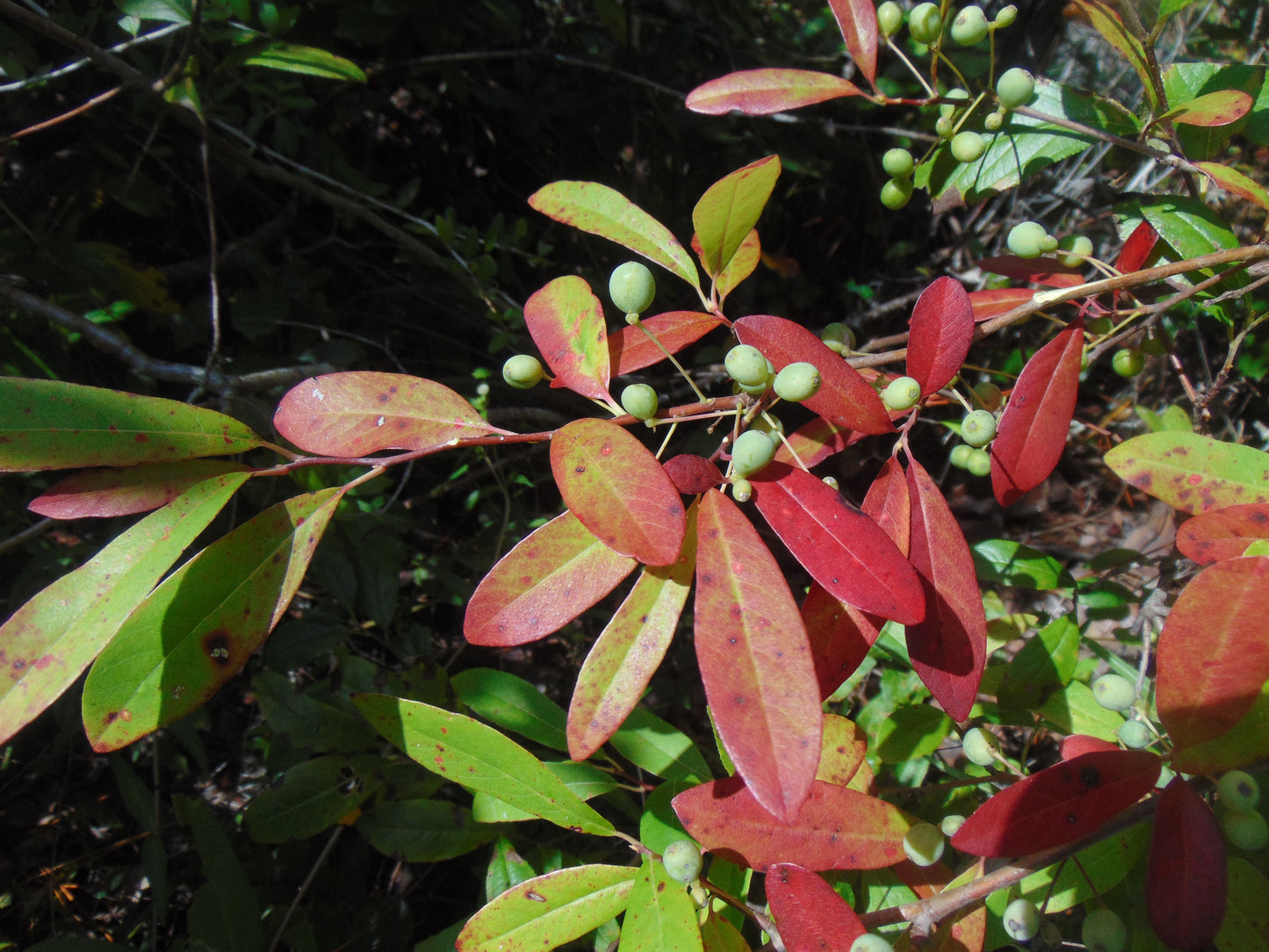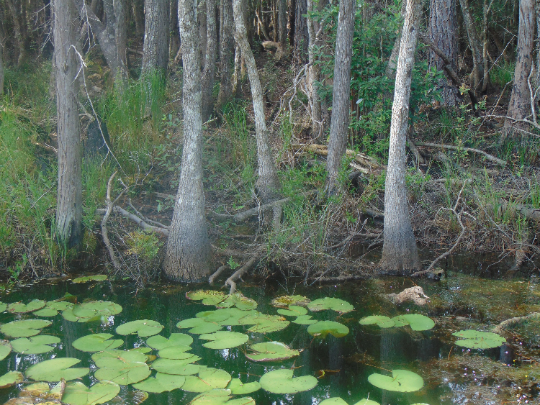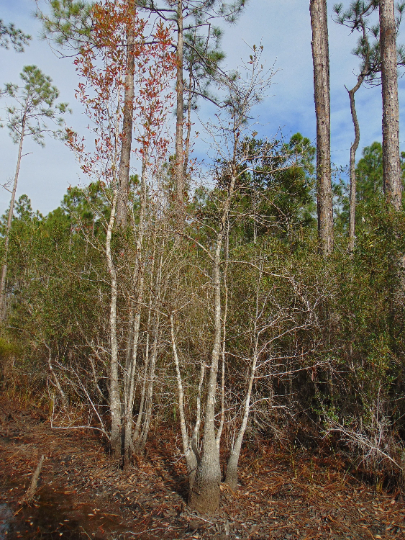Floridaseeds
Dwarf Tupelo Tree Bear Tupelo Nyssa ursina 10 Seeds USA Company
Dwarf Tupelo Tree Bear Tupelo Nyssa ursina 10 Seeds USA Company
Couldn't load pickup availability
The Dwarf Tupelo Tree is a small tree or a shrub that is native to the panhandle of northwestern Florida. It only grows in a few counties on the gulf coast in this region. The region that it grows in is widely known for its fantastic variety of native plants and rare, endemic species. The dwarf tupelo tree is one of those rare, endemic species. It is a shrub or a small tree with a straight or crooked trunk and a very picturesque, enlarged base. It grows up to 2-15 feet in height. It is single or multi-stemmed and the multi-stemmed plants form very lovely clusters of stems with enlarged bases. Leaves are dark green, leathery, elliptic or oblong and shiny. They turn red in the autumn. It is an intricately branched canopy and it produces a multitude of oval or subglobose, dark blue or purple fruits. The fruits contain one seed. It would make a fine, rare and very unusual bonsai tree. It is also known as the bear tupelo because bears are reputed to like the abundantly produced fruits and the Apalachicola tupelo because it is endemic to the Apalachicola region of Florida. It grows in swamps, ponds, wet woodlands and pinelands and it likes full sun and moist soil. Hardy in zones 6-10.
Growing Instructions for the Dwarf Tupelo Tree
The seeds have a period of dormancy. They can be planted outdoors in the fall or winter for spring germination or they can be cold stratified to simulate winter conditions and to break their dormancy at any time of the year. 1. Soak the seeds in water for 24 hours. 2. Put the seeds in a ziplock bag. 3. Put the bag in the refrigerator for 2 months. 4. The seeds like moist soil. Prepare a mixture of half potting soil and half sand, perlite or vermiculite. Put the soil in a pot. 5. Sow the seeds on the soil. 6. Cover the seeds with a thin layer of soil. 7. Water the soil. 8. When the seedlings are a few inches tall, they can be transplanted.
Materials
Materials
Shipping & Returns
Shipping & Returns
Dimensions
Dimensions
Care Instructions
Care Instructions
Share








